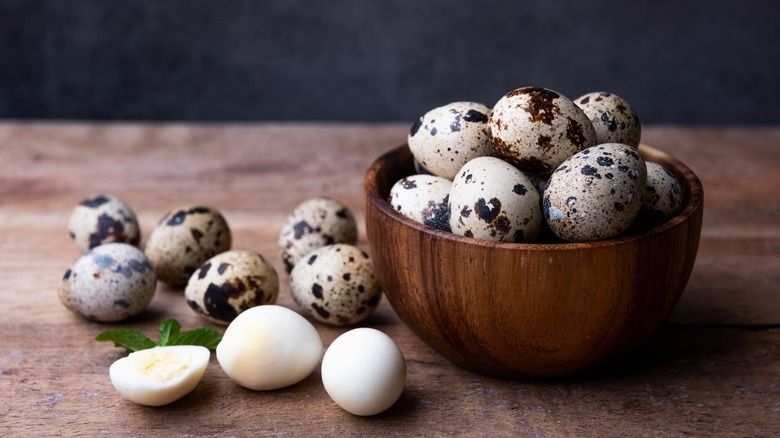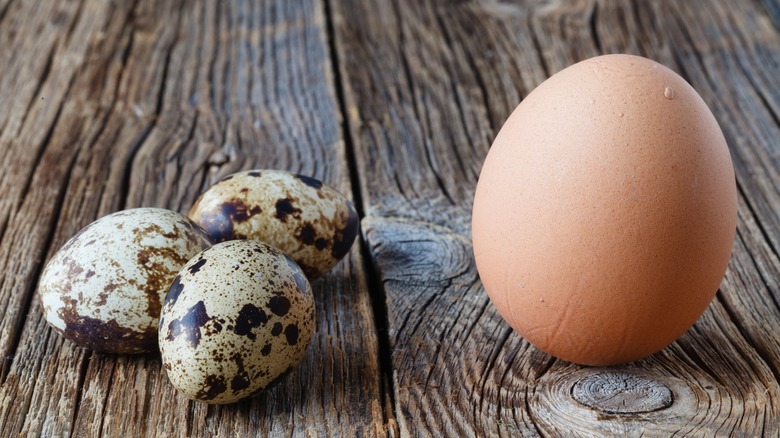Are Quail Eggs A Proper Substitute For Chicken Eggs?
We may receive a commission on purchases made from links.
With a history of some major grocery chains limiting how many eggs customers can purchase, people have searched for alternatives. There are plenty of egg substitutes you probably already have lying around the kitchen, but none contain any actual chicken egg. If you want the real deal, you have to capitulate and buy a spendy carton ... or maybe look to another bird. Quail eggs frequently top elegant cuisine at Michelin-starred restaurants, making some folks contemplate if they can swap them for chicken eggs.
While there are a few nuances to be aware of, quail eggs make a fantastic substitute for chicken eggs, so long as you are willing to pony up for this often-expensive variety. They are often described as creamier and more flavorful than the carton of Grade AA you usually pick up at the supermarket, but they are considerably smaller. You might not be sure what a recipe means when it asks for a large egg, but a quail ovum certainly doesn't qualify. When substituting them in a recipe like an omelet, you generally want to use three quail eggs for every chicken egg.
The reason many folks rave about how deliciously rich quail eggs are is that they have a higher yolk-to-white ratio than your average chicken variety. While this can elevate baked goods by offering a more velvety texture and create a stunning topping for dishes begging for more visual appeal, they need some special considerations when being prepared.
The differences matter when substituting eggs
When substituting quail eggs in a recipe, adjust your cooking time because of the higher yolk-to-whites ratio. If you put them in baked goods for an ultra-creamy result, they will need a little more time so the yolk fully cooks. Alternatively, when making a fried egg to top a savory slider, it will cook faster than your typical chicken egg.
Another glaring difference between the two is quail eggs have a harder shell. You might even need to use a paring knife to crack them open (we recommend the SliceX HR57C Paring Knife). They are also commonly sold unpasteurized, so make sure they're fully cooked (no runny yolks, sorry) to minimize the risk of contracting a foodborne illness.
You can purchase them at some major grocery stores, but if you aren't having any luck finding them at your local supermarket, natural food markets and Asian groceries should have them around. However, bear in mind that they are typically more expensive than chicken eggs. Depending on your food budget, substituting chicken eggs for quail eggs might be a once-in-a-while treat.

